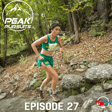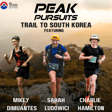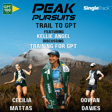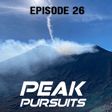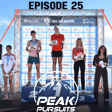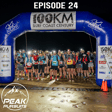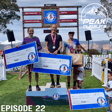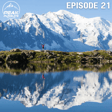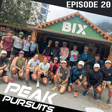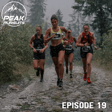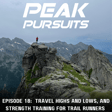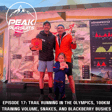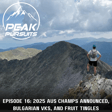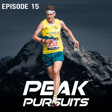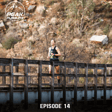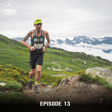
Episode 23: French living, and the Mental Side of Running Injuries and Body Image.
Welcome to Episode 23 of Peak Pursuits, your ultimate podcast for everything trail running in Australia. This week’s episode is hosted by Jess Jason, Brodie Nankervis and Maddy Reynolds! This ep was a bit of a struggle with internet connections in Albania for Brodie but the team brings you updates from Maddy and Jess, a great discussion on mentally dealing with injuries that evolves into a discussion of body image, and as usual all the results from the week.
Start - 26:00 :-Training Talk
Hear an update of what Maddy has been up to since we last spoke to her post OCC and her struggles with biking in France, including a discussion about the how and when to return to different types of training after bigger races as Jess and Maddy both currently are.
26:00 - 50:15 :- Listener Question Gone Wonderfully Rogue (content warning - body image)
The team answers a listener question about mentally dealing with injuries, and in doing so Jess and Maddy open up on the much needed discussion of body image in running, fueling, and the things they have had to deal with in relation to theses to get to where they are today.
50:15 - 58:00 :- Race Results
We then cover the Aussie results at GTWS and a couple of Aussie races that went down over the weekend:
Headlands 27km GTWS: https://my.raceresult.com/300132/results
Pilliga Ultra: https://tempus.racetecresults.com/results.aspx?CId=16516&RId=385&EId=2
Mighty Jarrah Half Marathon: https://bluechipresults.com.au/results.aspx?CId=11&RId=1764&EId=6
58:00 - End : What’s coming up
Lastly, we do a quick run through of the upcoming trail races around the country and what is coming up for us.
Thanks for tuning in to Peak Pursuits! Connect with us on Instagram @peakpursuits.pod to share your thoughts, questions, and your own trail stories. Until next time, keep hitting the trails and chasing those peak pursuits!
Jess: @jess.jason95
Brodie: @brodie_nank
Maddy: @maddyreynolds98
Music from #Uppbeat (free for Creators!):https://uppbeat.io/t/mood-maze/trendsetter
License code: K08PMQ3RATCE215R
Cover image by @tonywithasony
